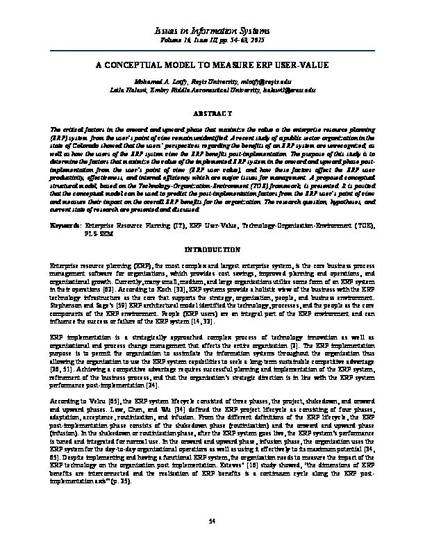
The critical factors in the onward and upward phase that maximize the value o the enterprise resource planning (ERP) system from the user’s point of view remain unidentified. A recent study of a public sector organization in the state of Colorado showed that the users’ perspectives regarding the benefits of an ERP system are unrecognized, as well as how the users of the ERP system view the ERP benefits post-implementation. The purpose of this study is to determine the factors that maximize the value of the implemented ERP system in the onward and upward phase postimplementation from the user’s point of view (ERP user value), and how these factors affect the ERP user productivity, effectiveness, and internal efficiency which are major issues for management. A proposed conceptual structural model, based on the Technology-Organization-Environment (TOE) framework, is presented. It is posited that the conceptual model can be used to predict the post-implementation factors from the ERP user’s point of view and measure their impact on the overall ERP benefits for the organization. The research question, hypotheses, and current state of research are presented and discussed.
Available at: http://works.bepress.com/Leila-A-Halawi/71/
